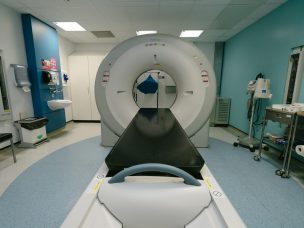January 13, 2023
Acute Exercise Effects on Tumor Outcomes in Localized Prostate Cancer
Medically reviewed by Dr. Samuel Sarmiento, M.D., MPH on August 3, 2023 A single session of physical exercise is inadequate to alter tumor hypoxia or NK cell invasion in patients with prostate cancer. Studies have reported that high levels of physical activity are associated with a lower risk of cancer recurrence and improved survival, suggesting...
Quality-of-Life and Toxicity Profile After Stereotactic Body Radiation (SBRT) for Radical Prostatectomy
Physician-scored toxicity and patient-reported outcomes showed SBRT is well-tolerated post-prostatectomy. Postoperative radiation therapy (RT) is an underutilized standard of care intervention for prostate cancer patients with recurrence/adverse pathologic features following radical prostatectomy. Although stereotactic body radiation therapy (SBRT) is a well-researched and convenient alternative for definitive treatment, data on its use after prostatectomy are exceedingly...
Prostate MRI versus PSA Screening for Prostate Cancer Detection
Biparametric prostate MRI reduces biopsy rates more than PSA screening alone and detects clinically relevant prostate cancers that PSA screening misses. The prostate-specific antigen (PSA) blood test is still used for prostate cancer screening after randomized clinical trials showed a reduction in prostate cancer mortality rates. Several serological and imaging techniques have been explored to...
Reminiscence Therapy‑Based Care Program for Surgical Prostate Cancer Patients
A reminiscence therapy-based care program reduces anxiety and depression and enhances life quality in surgical prostate cancer patients. Prostate cancer, characterized by dysuria, urinary leakage, and erectile dysfunction, is the second-most frequent cancer in men worldwide, with estimations of more than 1.4 million new cases and 375,000 new deaths reported in 2020. According to reports,...
Atopic Manifestation in Primary Immunodeficiency Disease Phenotypes
Patients with immunodeficiencies and antibody deficiencies typically have atopic symptoms, which should be addressed to avoid worsening of the condition. Primary immunodeficiency diseases (PIDs) are a heterogeneous set of more than 300 inherited immunity abnormalities caused by variations in genes encoding functional proteins of human immune cells. The estimated incidence of symptomatic PIDs is 1...
FDA Approves New Two-Drug Combo Medicine for Asthma
Medication is the first approved in the United States to contain an inhaled corticosteroid as a reliever rather than as a controller of asthma symptoms. Adults with asthma now have a new rescue medication to turn to after the U.S. Food and Drug Administration approved Airsupra on Wednesday. The drug is the first approved to...
Fluvoxamine Does Not Improve Time to Sustained Recovery in Mild COVID-19
No difference seen for fluvoxamine, placebo in composite outcome of hospitalization, urgent care visit, emergency department visit, death. For patients with mild-to-moderate COVID-19, treatment with fluvoxamine does not improve time to sustained recovery versus placebo, according to a study published online on Jan. 12 in the Journal of the American Medical Association. Matthew W. McCarthy,...






